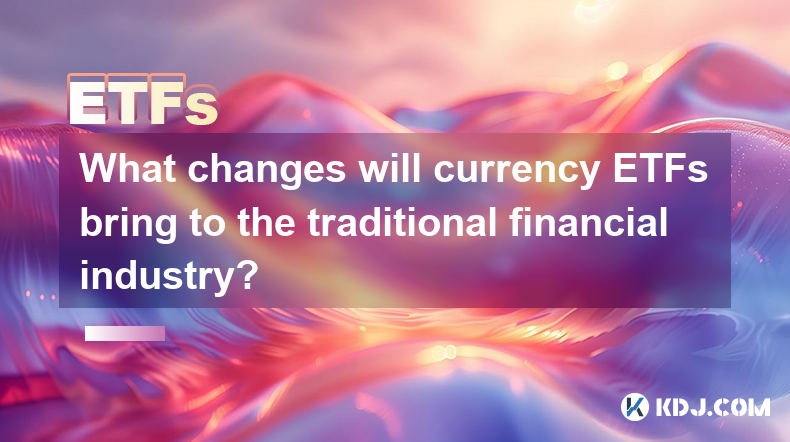-
 Bitcoin
Bitcoin $90,488.9627
3.25% -
 Ethereum
Ethereum $1,648.6203
1.86% -
 Tether USDt
Tether USDt $1.0002
0.04% -
 XRP
XRP $2.1308
0.60% -
 BNB
BNB $609.1067
1.09% -
 Solana
Solana $144.2976
4.60% -
 USDC
USDC $1.0001
0.02% -
 Dogecoin
Dogecoin $0.1691
5.15% -
 TRON
TRON $0.2453
1.36% -
 Cardano
Cardano $0.6553
2.05% -
 Chainlink
Chainlink $13.6478
1.73% -
 Avalanche
Avalanche $20.6869
1.44% -
 UNUS SED LEO
UNUS SED LEO $8.9297
-1.00% -
 Stellar
Stellar $0.2546
-0.93% -
 Sui
Sui $2.3967
7.31% -
 Shiba Inu
Shiba Inu $0.0...01293
3.21% -
 Hedera
Hedera $0.1756
3.33% -
 Toncoin
Toncoin $2.9501
-1.96% -
 Bitcoin Cash
Bitcoin Cash $352.0151
3.77% -
 Hyperliquid
Hyperliquid $18.8741
4.86% -
 Litecoin
Litecoin $81.3603
1.68% -
 Polkadot
Polkadot $3.8328
-1.79% -
 Dai
Dai $1.0001
0.03% -
 Bitget Token
Bitget Token $4.4709
0.34% -
 Ethena USDe
Ethena USDe $0.9992
0.00% -
 Pi
Pi $0.6403
0.76% -
 Monero
Monero $220.7901
2.60% -
 Pepe
Pepe $0.0...08428
6.50% -
 Uniswap
Uniswap $5.4802
1.22% -
 Aptos
Aptos $5.0952
-0.94%
What changes will currency ETFs bring to the traditional financial industry?
Currency ETFs offer an accessible gateway to global currency markets, enabling investors to diversify portfolios and facilitate currency exchange in real time.
Jan 07, 2025 at 05:56 pm

Key Points:
- Currency ETFs provide exposure to foreign currencies without the need for direct forex trading.
- They offer diversification benefits within a portfolio.
- They can facilitate real-time currency exchange and price discovery.
- They enhance accessibility to global markets for ordinary investors.
Unordered List of Content:
How Currency ETFs Work
- Currency ETFs track the value of a specific currency against a reference currency, such as the US dollar.
- They hold underlying currency contracts or forwards in the form of swaps or currency exchange-traded funds (ETFs).
- They mimic the risk-return profile of the underlying currency, allowing investors to gain exposure without the complexities of forex trading.
Role in Traditional Financial Industry
1. Diversification Benefits:
- Currency ETFs offer diversification within a portfolio by introducing a non-correlated asset class.
- They can reduce overall portfolio risk and enhance risk-adjusted returns.
- They are particularly effective in reducing risk during periods of market volatility or geopolitical instability.
2. Currency Exchange Facilitation:
- Currency ETFs simplify the process of exchanging currencies for investors.
- They provide real-time price discovery and liquidity, eliminating the need for intermediaries and reducing transaction costs.
- They make it easier for businesses and individuals to conduct international transactions.
3. Accessibility to Global Markets:
- Currency ETFs enable ordinary investors to gain exposure to global currency markets.
- They provide a convenient and cost-effective way to participate in currency movements without having to trade directly on the forex market.
- They expand investment opportunities and enhance portfolio diversification for a broader range of investors.
Types of Currency ETFs
1. Single-Currency ETFs:
- These ETFs track the value of a single currency against a reference currency, such as EUR/USD or GBP/USD.
- They provide targeted exposure to specific currencies and allow for currency speculation or hedging.
2. Multi-Currency ETFs:
- These ETFs track a basket of multiple currencies, offering diversification within the currency asset class.
- They provide exposure to broader currency markets and reduce the risk associated with single-currency ETFs.
FAQs
1. What are the advantages of investing in currency ETFs?
- Diversification benefits.
- Currency exchange facilitation.
- Accessibility to global markets.
- Simplified trading and reduced transaction costs.
2. What are the risks associated with currency ETFs?
- Currency volatility: The underlying currency value can fluctuate, leading to losses.
- Tracking error: The ETF's returns may deviate from the underlying currency's returns due to fees and other factors.
- Currency risk: Investing in foreign currency ETFs exposes investors to currency exchange rate fluctuations.
3. How can currency ETFs be used in a portfolio?
- Diversification: To reduce overall portfolio risk and enhance risk-adjusted returns.
- Currency hedging: To mitigate the impact of currency fluctuations on foreign investments or income.
- Speculation: To speculate on currency movements and profit from currency fluctuations.
Disclaimer:info@kdj.com
The information provided is not trading advice. kdj.com does not assume any responsibility for any investments made based on the information provided in this article. Cryptocurrencies are highly volatile and it is highly recommended that you invest with caution after thorough research!
If you believe that the content used on this website infringes your copyright, please contact us immediately (info@kdj.com) and we will delete it promptly.
- Oregon Sues Coinbase Listing 31 Crypto Assets Including XRP as Unregistered Securities
- 2025-04-22 22:00:25
- Shiba Inu (Shib) Flips HEdera (HBAR) in Global Crypto Market Cap Rankings
- 2025-04-22 22:00:25
- title: Galaxy Digital's Alex Thorn believes the US government will add Bitcoin (BTC) to the Strategic Bitcoin Reserve (SBR).
- 2025-04-22 21:55:13
- The latest Pepe news highlights how this volatile memecoin is holding firm above $0.0000075
- 2025-04-22 21:55:13
- Bitcoin's Primary Function Is to Hedge Against Risks to the Financial System, Says Geoffrey Kendrick of Standard Chartered
- 2025-04-22 21:50:12
- Oregon Attorney General Dan Rayfield has filed a lawsuit against Coinbase
- 2025-04-22 21:50:12
Related knowledge

What role does SEC play in Bitcoin ETF approval?
Feb 25,2025 at 06:48am
Key Points:SEC's Role in Bitcoin ETF Approval ProcessHistorical Efforts to Establish a Bitcoin ETFSEC's Criteria for Bitcoin ETF ApprovalPotential Impact of a Bitcoin ETF on the Cryptocurrency MarketTimeline and Outlook for Bitcoin ETF ApprovalArticle:SEC Play in Bitcoin ETF ApprovalThe United States Securities and Exchange Commission (SEC) plays a crit...

Who is eligible to issue Bitcoin ETFs?
Feb 25,2025 at 11:13am
Key Points:Only regulated financial institutions with the necessary expertise and infrastructure are eligible to issue Bitcoin ETFs.The Securities and Exchange Commission (SEC) has not yet approved any spot Bitcoin ETFs, but has approved several futures-based ETFs.Applicants must meet stringent requirements, including having a strong track record and su...

What impact does Bitcoin ETF have on the market?
Feb 25,2025 at 11:37am
Key Points:Introduction to Bitcoin ETFs and their role in the cryptocurrency marketHistorical development and performance of Bitcoin ETFsPotential benefits of Bitcoin ETFs for investors and the marketRisks and limitations associated with Bitcoin ETFsRegulatory considerations and their impact on Bitcoin ETFsArticle:Introduction to Bitcoin ETFsBitcoin exc...

Which investors are Bitcoin ETFs suitable for?
Feb 27,2025 at 04:01pm
Key Points:Understanding Bitcoin ETFsBenefits of Bitcoin ETFsSuitability of Bitcoin ETFs for Different InvestorsAssessing Risk Tolerance and Investment GoalsConsidering Short-Term and Long-Term StrategiesExamining Tax ImplicationsSeeking Professional AdviceUnderstanding Bitcoin ETFsBitcoin exchange-traded funds (ETFs) are investment vehicles that track ...

What is the administrative expenses of Bitcoin ETFs?
Feb 26,2025 at 12:24am
Key Points:Administrative expenses are a crucial factor to consider when evaluating Bitcoin ETFs.These expenses can significantly impact the performance of the fund and ultimately the investor's returns.Understanding the various components of administrative expenses is essential for informed decision-making.Comparing administrative expenses across diffe...

What are the fees for purchasing Bitcoin ETFs?
Feb 27,2025 at 07:13pm
Key Points:Bitcoin exchange-traded funds (ETFs) are a cost-effective and regulated way to gain exposure to Bitcoin.Fees associated with Bitcoin ETF purchases vary depending on the platform, trading volume, and account type.It is essential to evaluate fee structures carefully to optimize investment returns.Fees Associated with Purchasing Bitcoin ETFs1. B...

What role does SEC play in Bitcoin ETF approval?
Feb 25,2025 at 06:48am
Key Points:SEC's Role in Bitcoin ETF Approval ProcessHistorical Efforts to Establish a Bitcoin ETFSEC's Criteria for Bitcoin ETF ApprovalPotential Impact of a Bitcoin ETF on the Cryptocurrency MarketTimeline and Outlook for Bitcoin ETF ApprovalArticle:SEC Play in Bitcoin ETF ApprovalThe United States Securities and Exchange Commission (SEC) plays a crit...

Who is eligible to issue Bitcoin ETFs?
Feb 25,2025 at 11:13am
Key Points:Only regulated financial institutions with the necessary expertise and infrastructure are eligible to issue Bitcoin ETFs.The Securities and Exchange Commission (SEC) has not yet approved any spot Bitcoin ETFs, but has approved several futures-based ETFs.Applicants must meet stringent requirements, including having a strong track record and su...

What impact does Bitcoin ETF have on the market?
Feb 25,2025 at 11:37am
Key Points:Introduction to Bitcoin ETFs and their role in the cryptocurrency marketHistorical development and performance of Bitcoin ETFsPotential benefits of Bitcoin ETFs for investors and the marketRisks and limitations associated with Bitcoin ETFsRegulatory considerations and their impact on Bitcoin ETFsArticle:Introduction to Bitcoin ETFsBitcoin exc...

Which investors are Bitcoin ETFs suitable for?
Feb 27,2025 at 04:01pm
Key Points:Understanding Bitcoin ETFsBenefits of Bitcoin ETFsSuitability of Bitcoin ETFs for Different InvestorsAssessing Risk Tolerance and Investment GoalsConsidering Short-Term and Long-Term StrategiesExamining Tax ImplicationsSeeking Professional AdviceUnderstanding Bitcoin ETFsBitcoin exchange-traded funds (ETFs) are investment vehicles that track ...

What is the administrative expenses of Bitcoin ETFs?
Feb 26,2025 at 12:24am
Key Points:Administrative expenses are a crucial factor to consider when evaluating Bitcoin ETFs.These expenses can significantly impact the performance of the fund and ultimately the investor's returns.Understanding the various components of administrative expenses is essential for informed decision-making.Comparing administrative expenses across diffe...

What are the fees for purchasing Bitcoin ETFs?
Feb 27,2025 at 07:13pm
Key Points:Bitcoin exchange-traded funds (ETFs) are a cost-effective and regulated way to gain exposure to Bitcoin.Fees associated with Bitcoin ETF purchases vary depending on the platform, trading volume, and account type.It is essential to evaluate fee structures carefully to optimize investment returns.Fees Associated with Purchasing Bitcoin ETFs1. B...
See all articles























































































